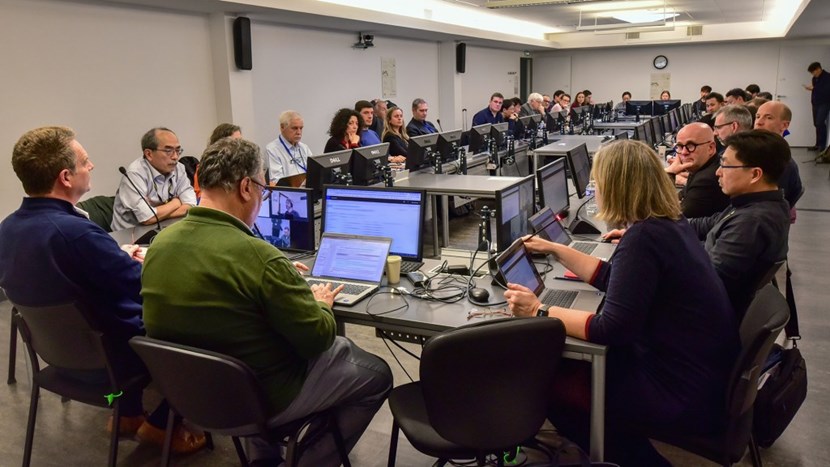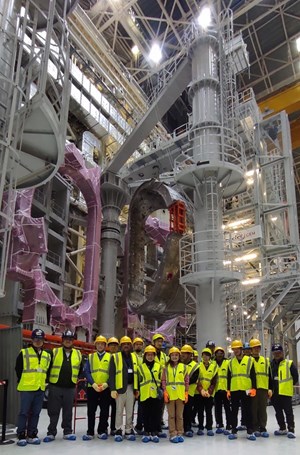ITER NEWSLINE
-
ITER Research Plan
Jointly preparing a new blueprint
Alberto Loarte, Head of the Science Division
ITER Research Plan | Jointly preparing a new blueprint
As part of work underway to update the ITER Project Baseline, a group of experts nominated by the Members met in February to evaluate the new blueprint for achieving ITER's research goals.

ITER Organization staff and Member experts discuss the details of the new ITER Research Plan.
The ITER Organization will submit a new project baseline to the ITER Council for consideration in June 2024. Taking into consideration past delays incurred due to the Covid-19 pandemic, repairs to key components and other technical challenges with first-of-a-kind components, and a revised path to nuclear licensing, the new baseline proposes an optimized path to achieving the project's goals. The new baseline includes modifications to the configuration of the ITER device and its ancillaries (e.g., a change from beryllium to tungsten as first wall material, modifications to the heating and current drive mix, etc.) as well as additional testing of components (e.g., toroidal field coils) and phased installation (starting with an inertially cooled first wall and installing the final actively water-cooled components later) to minimize operational risks.
In this new approach, scientific exploitation is divided into three main phases: Augmented First Plasma, DT-1 and DT-2 plus the associated integrated commissioning phases. In its September 2023 meeting, the ITER Council Science and Technology Advisory Committee (STAC) found the plan compelling and recommended that this outline be adopted for the further articulation of the new ITER Research Plan to be elaborated by the ITER Organization and Member experts.

Participants to the ITER Research Plan development workshop during a visit to the ITER Assembly Hall.
To this end, in late 2023, each ITER Member nominated five experts, with a preference for younger contributors who will have a greater opportunity to be involved in ITER's scientific exploitation. Following some preparatory teleconference meetings in 2023 and early 2024, the first new ITER Research Plan development workshop took place at ITER headquarters from 13 to 15 February. The meeting began with presentations by ITER staff describing the details of the new ITER Baseline and ITER Research Plan, followed by joint analysis of the main objectives of the various Research Plan phases, the suitability of the configuration of the ITER device and its ancillaries to achieve these objectives, and the expected operational time for each phase. Detailed evaluations were carried out by five working groups jointly led by staff from ITER and Member experts over three intense days, concluding with a final session during which all the groups reported their findings.
Overall, the analyses of the working groups found that the main elements of the outline Research Plan submitted for review to STAC in September 2023 were appropriate. However, the groups identified specific aspects of the outline plan which require further review and optimization. As an example, it was concluded that the demonstration of Q=10 operation in short burn (~ 50 s) could already be achieved in the third of up to five planned campaigns in the DT-1 phase, even if the final goal of Q=10 for 300-500 s may have to wait until later in DT-1.
This new ITER Research Plan development workshop will be followed by further analysis of the issues and optimization possibilities identified during what was an extremely beneficial gathering of experts. This work will be performed via email and videoconference by the same groups in the next weeks in preparation of a second, probably virtual, workshop to be held in late March. This will allow the details of the new ITER Research Plan to be finalized in time for submission for endorsement to the STAC in May.
return to the latest published articles



